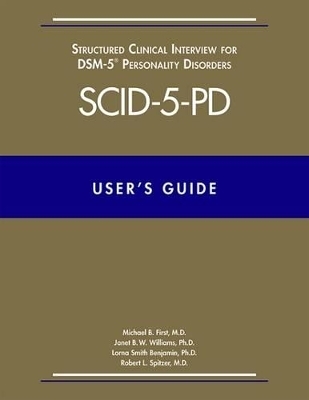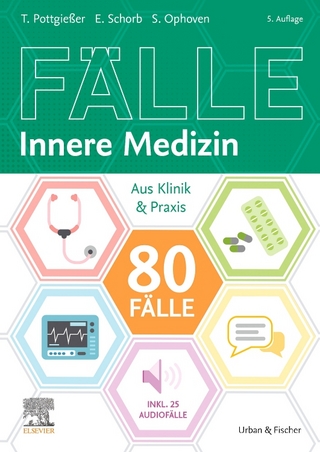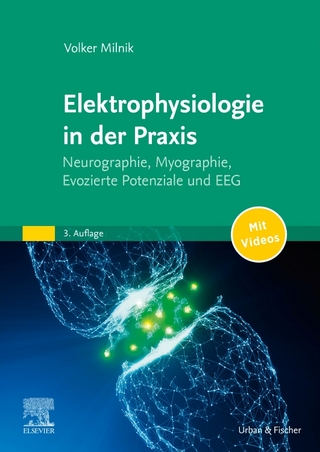
Structured Clinical Interview for DSM-5® Disorders—Clinician Version (SCID-5-CV)
Seiten
2016
American Psychiatric Association Publishing (Verlag)
978-1-58562-461-4 (ISBN)
American Psychiatric Association Publishing (Verlag)
978-1-58562-461-4 (ISBN)
This book guides the clinician step-by-step through the DSM-5 diagnostic process. Interview questions are provided conveniently along each corresponding DSM-5 criterion.
The Structured Clinical Interview for DSM-5 —Clinician Version (SCID-5-CV) guides the clinician step-by-step through the DSM-5 diagnostic process. Interview questions are provided conveniently along each corresponding DSM-5 criterion, which aids in rating each as either present or absent. The SCID-5-CV is an abridged and reformatted version of the Research Version of the SCID, the structured diagnostic interview most widely used by researchers for making DSM diagnoses for the past 30 years.
A unique and valuable tool, the SCID-5-CV covers the DSM-5 diagnoses most commonly seen in clinical settings: depressive and bipolar disorders; schizophrenia spectrum and other psychotic disorders; substance use disorders; anxiety disorders (panic disorder, agoraphobia, social anxiety disorder, generalized anxiety disorder); obsessive-compulsive disorder; posttraumatic stress disorder; attention-deficit/hyperactivity disorder; and adjustment disorder. It also screens for 17 additional DSM-5 disorders.
Versatile in function, the SCID-5-CV can be used in a variety of ways. For example, it can ensure that all of the major DSM-5 diagnoses are systematically evaluated in adults; characterize a study population in terms of current psychiatric diagnoses; and improve interviewing skills of students in the mental health professions, including psychiatry, psychology, psychiatric social work, and psychiatric nursing.
Enhancing the reliability and validity of DSM-5 diagnostic assessments, the SCID-5-CV will serve as an indispensible interview guide.
The Structured Clinical Interview for DSM-5 —Clinician Version (SCID-5-CV) guides the clinician step-by-step through the DSM-5 diagnostic process. Interview questions are provided conveniently along each corresponding DSM-5 criterion, which aids in rating each as either present or absent. The SCID-5-CV is an abridged and reformatted version of the Research Version of the SCID, the structured diagnostic interview most widely used by researchers for making DSM diagnoses for the past 30 years.
A unique and valuable tool, the SCID-5-CV covers the DSM-5 diagnoses most commonly seen in clinical settings: depressive and bipolar disorders; schizophrenia spectrum and other psychotic disorders; substance use disorders; anxiety disorders (panic disorder, agoraphobia, social anxiety disorder, generalized anxiety disorder); obsessive-compulsive disorder; posttraumatic stress disorder; attention-deficit/hyperactivity disorder; and adjustment disorder. It also screens for 17 additional DSM-5 disorders.
Versatile in function, the SCID-5-CV can be used in a variety of ways. For example, it can ensure that all of the major DSM-5 diagnoses are systematically evaluated in adults; characterize a study population in terms of current psychiatric diagnoses; and improve interviewing skills of students in the mental health professions, including psychiatry, psychology, psychiatric social work, and psychiatric nursing.
Enhancing the reliability and validity of DSM-5 diagnostic assessments, the SCID-5-CV will serve as an indispensible interview guide.
Michael B. First M.D., is a Professor of Clinical Psychiatry at Columbia University and a Research Psychiatrist at the Division of Clinical Phenomenology at the New York State Psychiatric Institute. Janet B.W. Williams, Ph.D., is Professor Emerita of Clinical Psychiatric Social Work (in Psychiatry and Neurology), Columbia University and Senior Vice President of Global Science, at MedAvante, Inc. Rhonda S. Karg, Ph.D., Research Psychologist, Division of Behavioral Health and Criminal Justice Research, RTI International, Durham, North Carolina Robert L. Spitzer, M.D., is Professor Emeritus of Psychiatry at Columbia University.
| Erscheinungsdatum | 31.03.2023 |
|---|---|
| Zusatzinfo | Not illustrated |
| Verlagsort | VA |
| Sprache | englisch |
| Maße | 216 x 279 mm |
| Gewicht | 1193 g |
| Themenwelt | Medizin / Pharmazie ► Medizinische Fachgebiete ► Psychiatrie / Psychotherapie |
| Studium ► 2. Studienabschnitt (Klinik) ► Anamnese / Körperliche Untersuchung | |
| ISBN-10 | 1-58562-461-6 / 1585624616 |
| ISBN-13 | 978-1-58562-461-4 / 9781585624614 |
| Zustand | Neuware |
| Informationen gemäß Produktsicherheitsverordnung (GPSR) | |
| Haben Sie eine Frage zum Produkt? |
Mehr entdecken
aus dem Bereich
aus dem Bereich
aus Klinik und Praxis
Buch | Softcover (2023)
Urban & Fischer (Verlag)
42,00 €
Neurographie, Myographie, Evozierte Potenziale und EEG
Buch | Softcover (2024)
Urban & Fischer in Elsevier (Verlag)
58,00 €
Buch | Hardcover (2017)
Hogrefe (Verlag)
60,00 €


